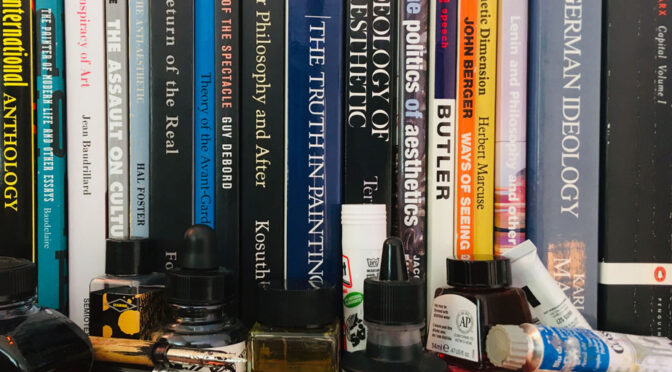New course: Art + Critique
Very excited to launch a new course! It combines almost a year’s worth of critical studies lectures and seminars, group tutorials and workshops into one term so it’s going to be pretty intense. Designed during the transition from lockdown to whatever it is we have now, it tries to make up for some of the community, context, interaction, challenge, motivation, freedom and future horizons that we lost in the last six months.
The course supports participants as they develop their practice and research, and provides them with a solid background in the histories and discourses of contemporary art. The lectures survey the histories and discourses of contemporary art, demystify the art world and provide multiple entry points into critical theory. The programme fosters collaborative study and provides practical tools in group feedback sessions and workshops on creative practice, research and writing.
By the end of the course participants will have a critical awareness of contemporary art practice, with a road map and toolbox of methodologies for their continuing practice and the confidence to pursue it independently. The course is open to everyone but it is particularly suited to those with a background in art, who wish to develop their practice and extend their knowledge of contemporary art practices and discourses.
Art + Critique: Critical & Contextual Studies in Art Practice
I proposed a self-organised course a couple of years ago but although there was a lot of interest, it never took off. The aim was to share the decision-making with all the participants, which also meant sharing the responsibilities. This time I designed a course that is half way between the traditional top-down structure (with a set schedule and a lead tutor) and the horizontal peer-to-peer structure that I’d like to develop eventually.
The course structure and infrastructure serve as a starting point from which to make collective decisions and modify and adapt the course to our needs. For example, we will choose whether to have online or hybrid visits to galleries and museums, wherever this is possible. We will use consensus decision-making, which means that everyone must agree with the proposed plan in each case. To achieve this we will have discussions to find the ideal plan within the circumstances.
The course modules are participatory and the discussions are student-led but there will be other ways of taking initiatives and leading sessions, such as starting discussion threads, making proposals and initiating discussions in group tutorials. There are four workshops (on creative practice, research and writing), four assignments, 6 lecture/seminars and regular group tutorials. For more information please visit the course page and for more information, such as the schedule, lecture outlines and reading, please download the course outline.
Looking forward to get started!
